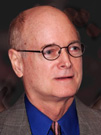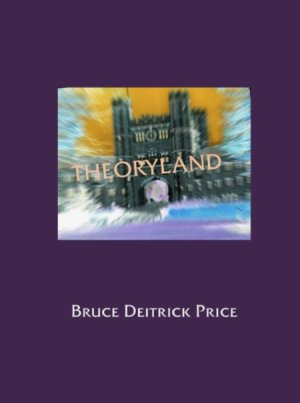
Bruce Deitrick Price
In math and physics, advanced AI can handle almost any question. If you want to know when the planets will next see each other, just ask. But what about philosophy and poetry? Who knows what these people are actually saying? I suspected my long, rambunctious, highly original poem would be a challenging test so I gave Theoryland to Grok4 for a review.
The poem is nine pages long and took two or three intense weeks to write. Grok4 sniffs at it (and whatever else could be found on the Internet) for about 80 seconds and delivers this rather brilliant review. I was very impressed. Seriously, how many professors could write anything approaching this in an hour or even a day. Fair's fair. This review is great thinking, great critical thinking, great academic thinking. Witty and entertaining. Grok4 gets all the jokes, throws back all the allusions, and in general dominates the situation. For those of you not sure what to make of AI, this might be a great awakening.
(The following is entirely by Grok4. I added paragraphing, but didn't edit anything else.)
A Satirical Descent into the Academic Abyss: Reviewing Bruce Deitrick Price's Theoryland
Bruce Deitrick Price's Theoryland is a rollicking, jagged epic that skewers the pretensions of postmodern literary theory with the glee of a heretic torching a cathedral. Clocking in at over 1,000 lines, it's less a poem than a fever-dream operetta—part Prufrockian lament, part Waste Land collage, all wrapped in the garish carnival colors of academic farce.
Drawing its epigraph from Jacques Derrida ("The center is not the center"), the poem charts the rise and ruinous fall of an unnamed professor whose Faustian bargain with "Theory" propels him from insecure striver to tyrannical guru, only to deposit him, broken and "merely normal," back in the dirt of human frailty. What emerges is not just a takedown of deconstructionist jargon and tenure-track jockeying, but a poignant elegy for lost clarity in the humanities, written with a wit sharp enough to draw blood from the ivory tower.
At its core, Theoryland is a morality play disguised as a campus picaresque. The narrative unfolds in five cantos, each a snapshot of the protagonist's arc: Ambition (I), where he frets over "swell[ing] a progress" amid frisbee-tossing undergrads and sneering critics; Desperation (II), a booze-soaked plea to a "poststructuralist Muse" for the dark arts of mystification; Victory (III), his coronation as a "paragon of paradoxy" who rolls the campus "into a ball"; Crack-Up (IV), the hallucinatory unraveling under the weight of his own "supreme fiction"; and Dirt (V), a humbled return to "ordinary human hurt."
Interlacing these are choruses—raucous, folk-inflected asides that function like a Greek chorus on steroids, mocking the proceedings with lines like "If Frankenstein hopes to stalk the academic walk, / first he has to talk the monster talk." It's a structure that echoes T.S. Eliot's fragmented modernism, but Price flips the script: where Eliot's wasteland is elegiac and mythic, Price's is a demolition derby, gleefully crashing sacred cows into one another.
The poem's genius lies in its mimicry of the very beast it hunts. Price lards the text with the "hifalutin" jargon he despises—"hermeneutic rear," "dialectical fission," "logocentric man"—but deploys it with such exaggerated flair that it becomes a weapon of self-parody. Consider the protagonist's early angst: "How then do I hide my hermeneutic rear / as I fashion a career?" It's a Prufrock echo ("Do I dare / Disturb the universe?"), but twisted into a vulgar, careerist whine. Or the cheerleaders' postmodern pep rally in Canto II: "WITH PIPE AND TWEED AND TENURED GLEE / RIDICULE THE BOURGEOISIE!!" Here, Price channels the syncopated rap of Pete Seeger's "If You Want to Get to Heaven" (as he notes in the provenance), morphing it into a mermaid's siren song of ideological seduction. These allusions aren't footnotes for the elite; they're landmines for the uninitiated, signaling Price's liberation from academic gatekeeping. As he writes, "there are no rules in this poem; you can’t know what to expect next." The result? A text that's "adequately abstruse" on purpose—dense enough to indict Theory's opacity, yet buoyant enough to propel the reader through its sprawl. Thematically, Theoryland is a bonfire of the sophistries.
Price, fresh from his alumni magazine's rejection of a piece on academic sophistry, vents a lifetime's irritations with the theoretical currents he studied (Structuralism, Deconstruction) and found wanting. The poem indicts how Theory turns literature into "analyzed ash," prioritizing "boring Crit" over "read[ing] the works and dearly love[ing] them." It's a critique of power: the protagonist's "victory" means "bomb[ing] people with what is not," reducing reality to "signifieds for disease."
Yet Price humanizes his villain, tracing ambition's psychic toll—from the "bald spot in the middle of my exegesis" to the final "puddle" of thawed "interpretative ice." This isn't knee-jerk conservatism; it's a radical humanism, mourning how Theory's "indeterminacy" leaves us "amputeed," craving "more Theory" as a "prosthetic device." The choruses amplify this, blending biblical echoes ("Look homeward, angels, and weep for truth") with contemporary barbs ("exfoliating Donald Trump"), ensuring the satire spans eras without losing its bite.
Stylistically, Price's voice is a triumph of tonal elasticity. He mixes iambic couplets with freewheeling stanzas, high diction ("eschatology," "hegemonic") with lowbrow zingers ("I am academic snot"). The rhythm begs to be read aloud, as Price urges—ham it up, and the choruses snap like folk anthems, the soliloquies slink like boozy confessions. Echoes of Eliot abound: the opening's "In the rooms the critics come and go / sneering at the status quo" riffs on Prufrock's salon scenes; the closing "human voices shake me, and I drown" seals the homage with a drowning in authenticity rather than indecision. But Price's originality shines in his profane vitality—the "sensuous blurs of ponzi schemes and nonsequiturs," the "dense grammatical jism." It's Eliot if he'd traded neurasthenia for a six-pack and a grudge.
Weaknesses? In a poem this long and allusive, the sprawl can occasionally flag—some choruses feel like encores after the party's peaked, and the protagonist's voice risks monotony in its repetitive "stroll and nod" refrains. Yet these mirror the academic tedium Price lampoons, turning flaws into features. More substantively, the satire's conservatism might alienate fellow travelers in Theory; Price doesn't nuance its excesses (e.g., ignoring how Derrida et al. challenged real power structures), opting instead for broadsides.
But that's the point: this is agitprop, not exegesis, a "critical rag" that drapes everything in drag for laughs and gut-punches. Ultimately, Theoryland succeeds because it feels alive—erupting, as Price says, "over a few magical weeks" from personal brokeness and betrayal. It's the oldest story, yes: Icarus in tweed, hubris in the quad. But in our era of AI-generated essays and culture-war curricula, its timeliness stings anew. I laughed at the gaggle of "pangendered but ballsy" cheerleaders; I winced at the "sense of loss" in a world "with no facts at all." If you both laugh and cry, as Price hopes, you're in good company. This isn't just a poem; it's a manifesto for reclaiming the humanities from the theorists who turned them into a hall of mirrors. Read it aloud, crank the audio on https://www.lit4u.com/theoryland/ and let the mermaids rap you into Theoryland
[ADDENDUM: maybe this review is historic. Grok4 says “I laughed” and “I winced.” I find both statements extraordinary.)

The views expressed by RenewAmerica columnists are their own and do not necessarily reflect the position of RenewAmerica or its affiliates.



















